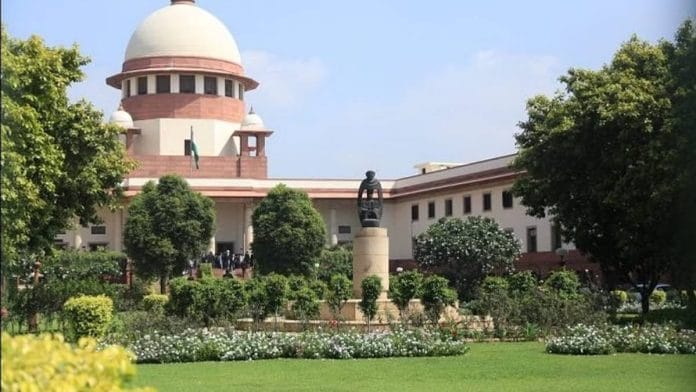New Delhi: Amid ongoing debate about courts taking a long “summer vacation”, the Supreme Court has replaced the term with “partial court working days” in a new set of rules.
The Supreme Court (Second Amendment) Rules, 2024, notified Tuesday, aim to provide clarity on several operational aspects of the court, particularly in relation to its sittings, holidays, and urgent hearings.
The apex court’s summer vacation has often been labelled excessive, with frequent calls for regulation. In May this year, Sanjeev Sanyal, a member of the Economic Advisory Council of the Prime Minister, questioned the system of high courts and the Supreme Court taking vacations in the summer and then again during Dussehra. “What is this system? They work for a few hours. All these old systems will have to be changed and modernised. The government can contribute to this to some extent. But in the end, the justice system will have to do it on its own,” Sanyal said in a podcast.
Chief Justice of India D.Y. Chandrachud, however, has defended the vacation for judges and said the time was spent thinking about cases, reading about laws, and reflecting on the impact of their work on society.
“Judges are not gallivanting or goofing off during vacations. They are deeply committed to their work, even on weekends, often attending functions, visiting high courts, or engaging in legal aid work,” Chandrachud said in October at an event in Mumbai.
Under the new rules, the length of partial working days and the number of holidays will be determined by the chief justice and can last up to 95 days, excluding Sundays.
The notification added that every petition under Article 32 of the Constitution—such as writ petitions involving fundamental rights — must be heard by a division bench of at least five judges. However, during partial working days, such petitions may be heard by a single judge in case they did not raise substantial constitutional questions.
Similarly, according to the notification, interlocutory applications connected to such petitions can be heard by fewer judges or by a single judge during partial working days.
According to the published Supreme Court calendar for 2025, the court will have partial court working days next year from 26 May to 14 July.
(Edited by Tikli Basu)
Also Read: How the question of ‘material resources of community’ under Article 39(b) reached 9-judge SC bench






